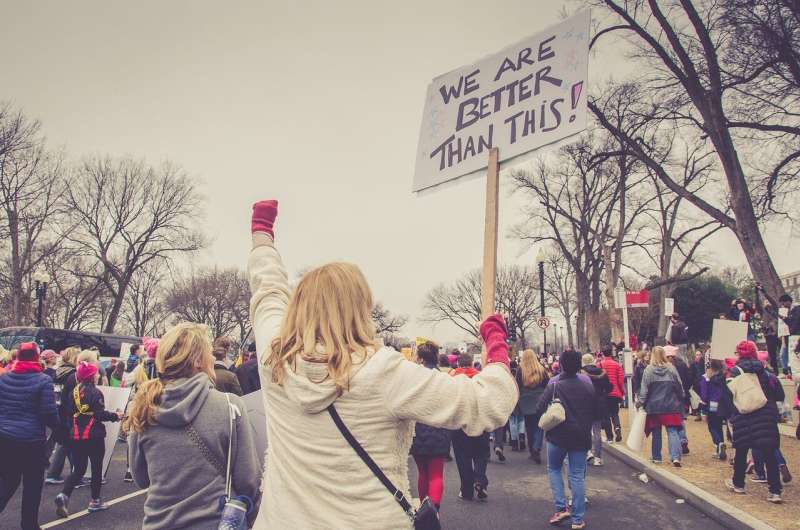This article has been reviewed according to Science X's editorial process and policies. Editors have highlighted the following attributes while ensuring the content's credibility:
fact-checked
peer-reviewed publication
trusted source
proofread
Research finds political attitudes did not change during COVID-19 pandemic

There is a traditional understanding that if someone experiences a threatening event, their attitudes and beliefs will change. Some scholars predict that a threat will cause someone to become more conservative on a variety of issues or that they will become more extreme in their attitudes.
However, a new study from researchers at Michigan State University and Tilburg University has found that Americans' political attitudes did not change significantly during the onset of the COVID-19 pandemic, contrary to what many expected. The study is published in the Personality and Social Psychology Bulletin journal.
"The onset of the pandemic was a major event that affected nearly every aspect of life. Political attitudes are often attitudes about how society should work and the rules and procedures that best guide society. One intuitive prediction is that if society changes, our political attitudes should also change," said Mark Brandt, a researcher and associate professor of psychology at MSU. "But that didn't happen. This suggests that people's attitudes are pretty resistant to changes, even when the conditions of society radically change."
With more than 2,000 people surveyed, the study is the most comprehensive analysis that has ever been conducted of attitude change in response to the COVID-19 pandemic, and possibly, to any major societal event. Data collected during the two different studies examined 84 different attitudes in all, including attitudes toward economic stimulus, unemployment benefits and trade with China. Researchers collected the data between spring of 2019 and the end of May 2020. To make visible day-to-day changes in attitudes across the timeframe, the team collected data weekly for one study and every other week for the second study.
Across the 84 attitudes, only 18 shifted in either the conservative or liberal direction—and these changes were small. For example, 3.5% of respondents did become more opposed to trade with China, while 11% of people became more supportive of unemployment benefits, and 14% became supportive of economic stimulus.
"We hope that this study helps social scientists understand how attitudes respond to real-world events so they can make better predictions in the future," said Brandt. "We also hope that this information helps people recognize how difficult attitude change can be. Things like attitude and cultural change do not seem to be the product of one large event, but instead, take time, effort and coordination among people from across society."
More information: Felicity M. Turner-Zwinkels et al, Ideology Strength Versus Party Identity Strength: Ideology Strength Is the Key Predictor of Attitude Stability, Personality and Social Psychology Bulletin (2023). DOI: 10.1177/01461672231189015
Journal information: Personality and Social Psychology Bulletin
Provided by Michigan State University





















